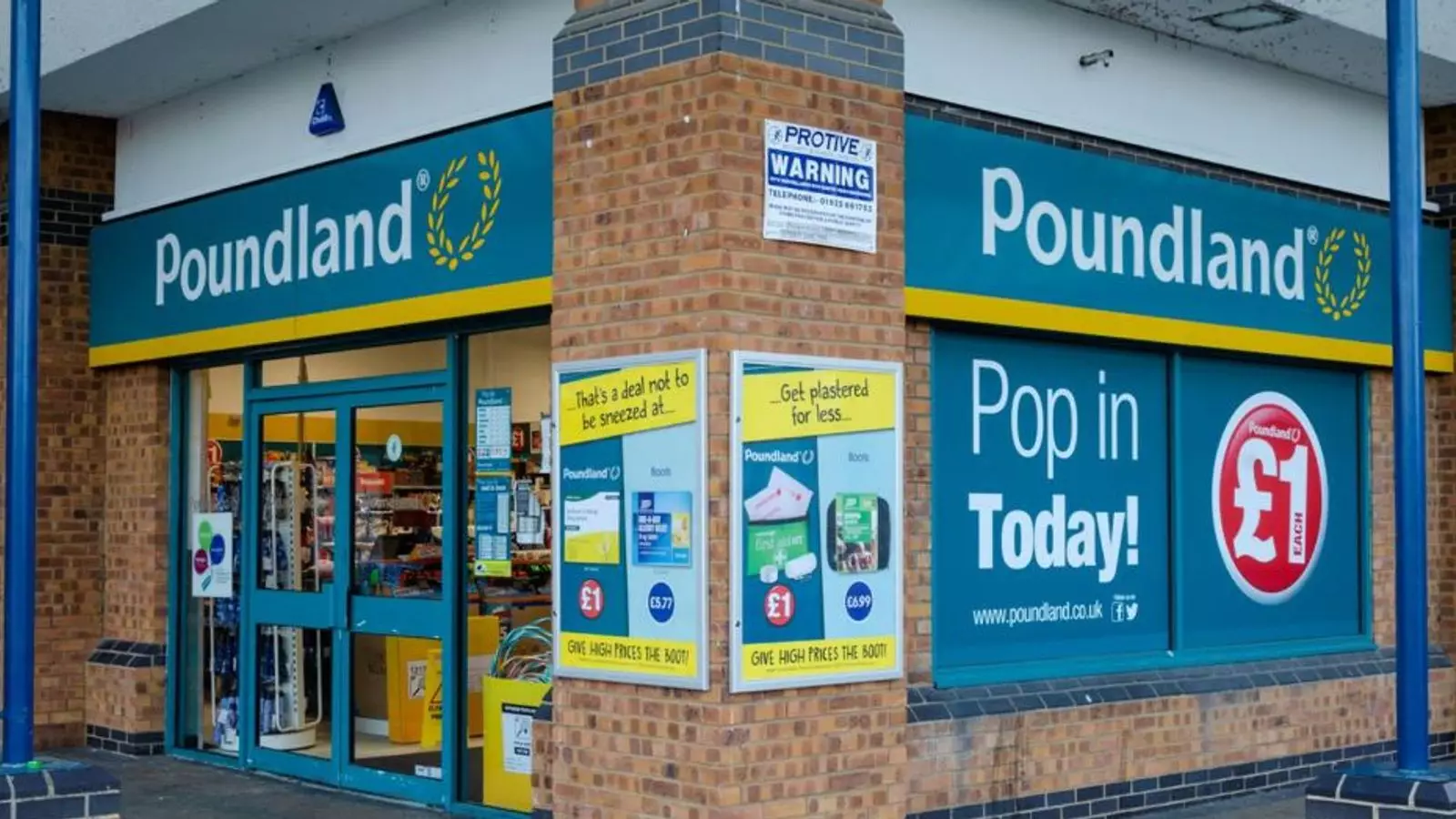Poundland, a prominent name in Britain’s discount retail sector, currently faces significant hurdles that threaten its stability and growth prospects. Owned by Pepco Group since 2016, the retailer has recently enlisted the aid of City advisers, specifically from AlixPartners, to navigate its ongoing difficulties. The purpose of this article is to meticulously assess the factors contributing to Poundland’s declining performance, the strategic responses being considered by its parent company, and the broader implications for the business’s future.
Recent reports indicate that Poundland has experienced a concerning 7.3% decrease in like-for-like sales during the Christmas trading season. This slump isn’t just a numerical fluctuation; it reveals deeper issues within the consumer market and the strategic positioning of the retailer. Pepco Group attributes the decline to a “more difficult sales environment and consumer backdrop” in the UK, hinting at wider economic challenges that are squeezing consumer spending power.
Amid rising operating costs and margin pressures, Poundland’s struggles pose unsettling questions about its economic viability. Competing with well-established rivals like Home Bargains and B&M, as well as major supermarket chains, the need for Poundland to differentiate itself has never been more pressing. The once-simple model of offering items at a fixed price appears increasingly antiquated in the face of today’s rapidly changing retail landscape.
The decision to engage AlixPartners underscores the severity of the situation. Having consultants on board is often a signal that a company is at a crossroads, exploring significant transformations. Pepco Group has suggested that potential strategies may involve a formal restructuring process that could lead to store closures or even an outright sale of Poundland.
While it’s crucial for Pepco to consider every avenue for reviving Poundland, it remains paramount that they also take measured steps. The designation of AlixPartners reflects the gravity of these discussions, with preliminary ideas such as a company voluntary arrangement being floated. However, sources close to the matter assert that no definitive actions have yet been agreed upon, marking this phase as a critical period of evaluation rather than execution.
According to Pepco’s statements, the current strategic focus is on reassessing Poundland’s cash performance and revitalizing its core business propositions. With a workforce of approximately 18,000 employees stationed across 825 stores, any substantial shifts in operations could have widespread implications for both staff and consumers.
The company has stated that it will not be expanding its store portfolio during this financial year, an indication that caution is being exercised. Evaluating all costs and competitive positioning is central to this reassessment, highlighting an intelligent, albeit cautious, approach toward addressing underselling.
With Chief Executive Stephan Borchert signaling that “every strategic option” is on the table, it is clear that the upcoming months will be pivotal for Poundland. The impending capital markets day scheduled for March 6 will likely provide critical insights into the company’s future trajectory. The focus on enhancing its range of fast-moving consumer goods (FMCG) demonstrates an acknowledgment of the shifting demands of consumers.
However, the juxtaposition of Poundland’s struggles against the backdrop of Pepco and Dealz’s thriving businesses raises concerns. While those brands are embracing success and growth, Poundland’s troubles could hinder Pepco Group’s overall performance and reputation.
Poundland’s current challenges indicate a retail landscape that is vastly evolving, and the path forward is fraught with complexities. The strategic consultations with AlixPartners illustrate an urgent attempt to tackle persistent issues that could threaten the company’s longevity. As the dust settles from the Christmas sales slump and the company deliberates its next moves, the retail giant must act swiftly and wisely to get back on a track of stability and growth.
The looming strategic decisions will not only affect the future of Poundland but will also serve as a litmus test for discount retail strategies in a competitive and cost-sensitive market. How effectively Pepco responds to these challenges will ultimately define Poundland’s future in the UK retail sector.

Leave a Reply